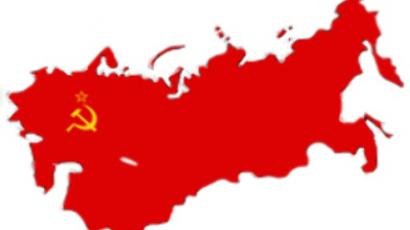Friday's Press Review

This Friday, Russian newspapers look into the matters of European security from different angles and quote independent experts on the near future of Russian-Georgian relations.
ROSSIYSKAYA GAZETA writes about the Helsinki meeting of Foreign ministers of the OSCE: ‘For the past ten years Ministers of Foreign affairs of the 56 member states of the OSCE gather once a year in order to try to understand why this international organization repeatedly fails to perform the functions it was created to perform in 1975.’ The paper quotes a high-ranking official of the Russian Foreign ministry as saying: ‘The Helsinki meeting became a test of sorts, which would define which trends are predominant in the OSCE: constructive, aimed at consolidation of the member states around the key problems of the modern world or destructive, behind which individual (egoistic) foreign policy interests of some countries are clearly visible.’
The paper says the OSCE has known fierce debates on election monitoring, controversies over its Statute that hasn’t even been drafted yet, over the ‘field missions’ in post-Soviet space. It continues to say that the limitation treaties on strategic assault weapons, as well as the treaty on conventional forces have been politically devalued by developments in Europe and the World in the past Decade.
The paper says that hope returned to the OSCE only with President Medvedev’s initiative on a new system of European security, suggested at the G8 summit last summer. The events around South Ossetia and Abkhazia initially threw the attention of the member states away from the plan suggested by Russia, says the newspaper, but now, as the German Foreign minister Frank-Walter Steinmeier puts it: ‘After the phase of tension we need to proceed to the phase of creation of trust.’
VREMYA NOVOSTEI writes that Russia and NATO have begun restoring their relations. The paper says there are several major issues that cannot be solved without dialogue between Russia and the West. As most of these issues are military-related, it is logical that they must be discussed with NATO participation. These issues, continues the paper, include the deployment of elements of the U.S. Missile Defence System in Eastern Europe and the situation around the Treaty on Conventional forces in Europe.
The paper quotes Russian experts who say that these issues are linked to each other, that new threats to Russia can be compensated for with Russia’s moratorium on the Conventional Forces Treaty, and that the deep concern on the matter from France, Germany and other Western nations is caused mainly by Russia’s promise to deploy ‘Iskander’ missiles off Kaliningrad. One of the experts quoted by the paper, Vladimir Evseev of the Centre for International Security of the Institute of the World Economy and International Relations in Moscow, says: ‘Taking into account that NATO remains, first and foremost, a military organization, the first condition for effective and successful interaction with it is the actual presence of very strong cards in our hand.’
The same paper has an article entitled ‘Between Brussels and Helsinki’ which says that NATO is at the moment ‘reluctant to trust the Russian architects of European security.’ The article says also that while France hails the Medvedev initiative on the new system of European security and suggests at the first in this century summit of the OSCE Heads of State to develop and adopt it in the documental form, NATO as an organization together with some of its core members expresses great concern over the initiative which, in their view, presents no new solutions and is ‘generally unclear’ about such things such as Russia’s moratorium on Conventional forces.
The article says that the Helsinki meeting reflects the complexity of the situation, so there is no point in expecting any ‘great leaps forward’. However, concludes the paper, even if just one problem is solved – if Russia, the U.S. and France agree to urge the sides in the Nagorno-Karabakh conflict to start withdrawing snipers from the conflict zone as the first step to signing an agreement on Karabakh, then the meeting will go down in history for this solitary positive decision.
NEZAVISIMAYA GAZETA publishes an op/ed article by Professor Alla Yazykova of the Institute of Europe, Russian Academy of Sciences. The academic reports on a meeting of Russian and Georgian independent experts in Istanbul at a conference organized by the European Centre for Conflict Prevention. The matters discussed at the conference included the origin of the Russo-Georgian controversy that finally led to an armed conflict in South Ossetia and Abkhazia, and ways to solve the existing problems so the Russian and Georgian peoples could again enjoy a close friendship.
The academic says every participant agreed that at the moment, the economic causes of the conflict, such as the fact that the Georgian territory continues to be used as a transit zone for Caspian oil, are still in place and bound to produce more problems in the future. Political factors, such as Georgia’s wish to join NATO, are also still there and going nowhere. However, she writes, the experts agreed: provided that mutual guarantees against the re-occurrence of armed hostilities are given, the two countries have a potential to relax tensions and gradually restore their relations at least to the level of speaking terms.
Evgeny Belenkiy, RT













